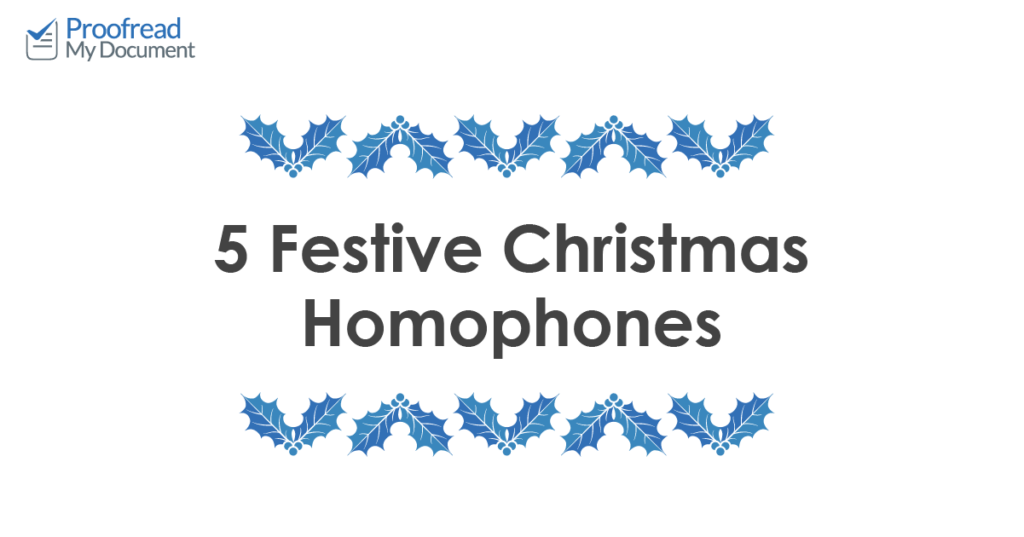What can a proofreading blog add to your festive preparations? How about a list of five Christmas homophones? Make sure not to get these terms mixed up when wishing your friends and family well this festive season!
1. Angels vs. Angles
Hark! The herald ‘angles’ sing… of being acute or obtuse? An ‘angle’ is the space between two intersecting lines (e.g. the corners inside a square are 90° angles). If you are looking for someone who can sing ‘glory to the newborn king’, though, you’ll want an ‘angel’ instead.
2. Mince vs. Mints
The words ‘mince’ and ‘mints’ sound similar, but only one of these belongs in a traditional Christmas pie. And while filling a pie with mints would be an interesting culinary experiment, you’re better off with mincemeat.
(Photo: darianstibbe/Pixabay)
A bigger question may be why this fruity little Christmas snack is called a ‘mince’ pie in the first place, given that ‘mince’ usually refers to meat. The answer is that ‘mincemeat’ was originally a way of preserving meat. Modern mince pies, however, tend to be more veggie friendly.
3. Presents vs. Presence
Among other things, the noun ‘presence’ can refer to a feeling that something is present when it is not. This is why people who believe in ghosts sometimes say they felt a ‘presence’ in a haunted house.
However, unless you’re following in Scrooge’s footsteps, we suggest sticking to ‘presents’ for Christmas. Most children expect gifts rather than an encounter with the undead on Christmas morning, after all.
4. Sleigh vs. Slay
Santa’s vehicle of choice is known as a ‘sleigh’. But this is pronounced the same as the verb ‘slay’, which means ‘kill’ or ‘murder’. It is therefore very important to differentiate between:
Find this useful?
Subscribe to our newsletter and get writing tips from our editors straight to your inbox.
- ‘Sleigh bells’, which are a common festive sight and sound.
- ‘Slay bells!’, which is a command to kill bells.
And if you slay sleigh bells, you will probably ruin the Christmassy mood.
5. Yule vs. You’ll
Finally, we have ‘Yule’ and ‘you’ll’. The first is a term for Christmas with roots in old pagan festivals. The second is a contraction that combines the words ‘you’ and ‘will’. They are, therefore, very different.
(Photo: skeeze/Pixabay)
It should be easy to tell these homophones apart. However, we saved them for the end of this list so we could use them in a sentence together:
We hope you’ll have a great Yule this year!
Season’s greetings to all! We’ll catch you again after Christmas. But if you need anything proofreading in the meantime, we have editors ready to help.
